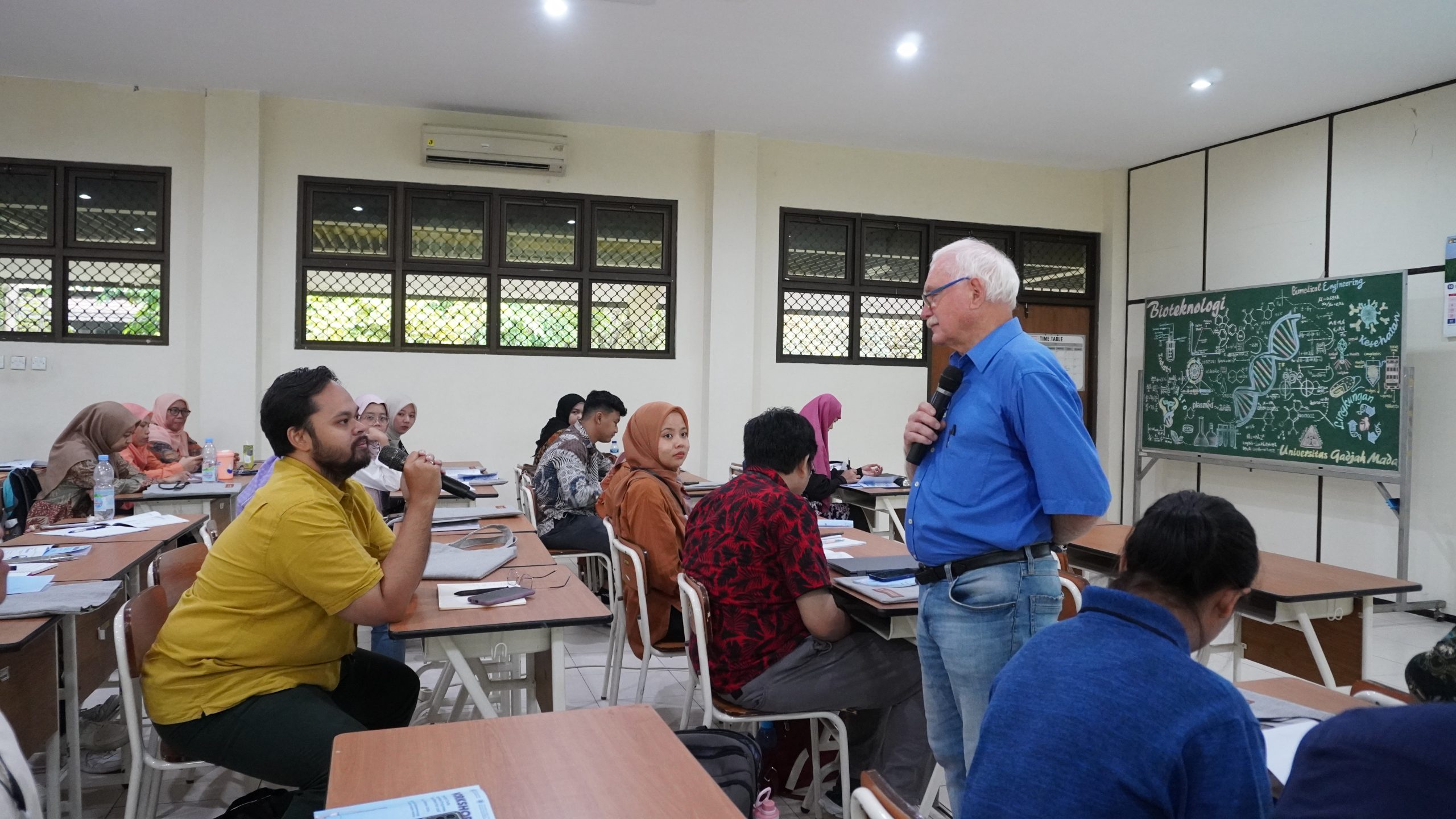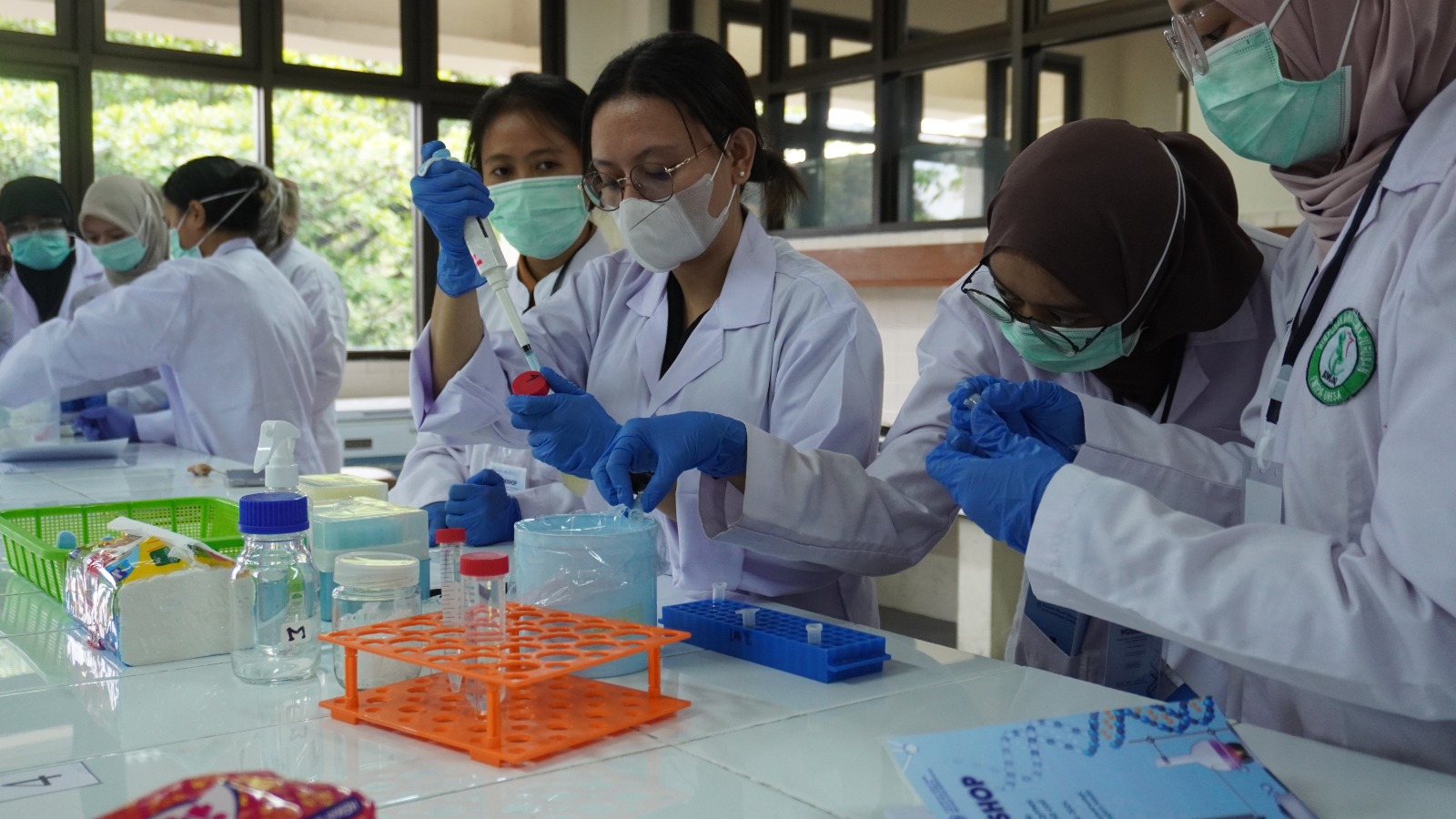
Yogyakarta – The Research Center and Study Program of Biotechnology Universitas Gadjah Mada (UGM), in collaboration with PT Widya Teknologi Hayati, successfully conducted a workshop titled “Producing Crude Polymerase from Escherichia coli” on Friday (October 25, 2024). The workshop was attended by 35 participants from various backgrounds, including representatives from universities, research centers, and industry.
The Head of the Research Center for Biotechnology UGM, explained in her opening remarks that the workshop aims to encourage the development of domestic products, particularly in the biotechnology field. “One of the main focuses is the production of DNA polymerase enzyme from Escherichia coli bacteria,” said Dr. Yekti Asih Purwestri, S.Si., M.Si. This enzyme plays a crucial role in various modern biotechnology applications, such as the Polymerase Chain Reaction (PCR), which is widely used in medical research and drug development.
Importance of Developing Local DNA Polymerase
Indonesia has been heavily reliant on imported DNA polymerase enzymes. However, with abundant biological resources, Indonesia has significant potential to develop independent enzyme production. Therefore, this workshop represents a concrete step toward achieving that independence.
“Through this workshop, we want to make a real contribution to the development of biotechnology in Indonesia, particularly in polymerase enzyme production,” stated Agung Dian Kharisma, S.Pd.Si., M.Biotech., Ph.D., the organizing committee chair. “Participants were equipped with the necessary knowledge and skills to foster new innovations in biotechnology, including the development of high-quality DNA polymerase products.”
The workshop presented comprehensive material, ranging from basic theory about enzymes, production techniques, industrial scale development, to applications in various fields. The classroom sessions were led by Dr. rer.nat. Erich Bürger, an expert from Senior Experten Service (SES) Germany, who has over 28 years of experience in the protein industry. In addition to classroom instruction, participants also engaged in laboratory practice to directly apply the DNA polymerase enzyme production process. “The material presented was very useful. The workshop was engaging and insightful,” said Azmi Zaki Waliudin Althaf, S.Biotek., M.Biotech.


Strategic Collaboration
The collaboration between the Research Center and Study Program of Biotechnology UGM and PT Widya Teknologi Hayati is a strategic step to strengthen the research and innovation ecosystem in Indonesia. PT Widya Teknologi Hayati, a startup in the biotechnology sector, actively supports technical assistance and technology transfer to workshop participants. “With this workshop, we hope that in the future Indonesia can produce its own polymerase,” Agung Dian concluded.

It is hoped that this workshop can motivate participants to continue developing research and innovations in biotechnology. With increasing involvement from researchers and industries in biotechnology product development, Indonesia can become more independent and competitive on the international stage. (AR)
